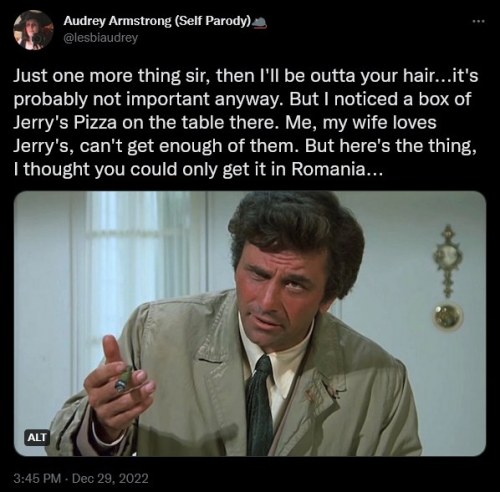My Favorite Genre Of Self-portrait Is Cartoonists Being Bothered By Their Characters While Trying To
My favorite genre of self-portrait is cartoonists being bothered by their characters while trying to draw

Bill Watterson – Calvin and Hobbes (1986)

Hergé – Tintin (1947, Tintin Magazine)

Albert Uderzo – Asterix (the cover of Uderzo l'Irreductible (2018), but originally much older)

Jeff Smith – Bone (1993, Bone Holiday Special)

Walt Kelly – Pogo (1950, Maclean's Magazine)
And a bonus:

Berkeley Breathed – Bloom County
More Posts from Middlering and Others
Morten Morland (@mortenmorland) gives Nick Clegg and Chris Huhne the cartoon-test
“It’s simple, really. If a person is easy to draw, he’ll do well [in politics]. Because the likelihood is he’ll have other interesting characteristics too, which will make him appealing to journalists, thus raising the party’s profile in the media. And people watching are more likely to remember him, which is a bonus!
A quick cartoon-test shows that Nick Clegg, probably the favourite in the party at the moment, will lead the party into eternal oblivion, if elected. He is Mr. Some Bloke embodified – despite the fact that he can speak several languages.
I did a couple of quick sketches, and worringly for him, the best caricature came after I in frustration drew a lifeless mask.
People will see Nick Clegg on TV and wonder whether he’s that guy from marketing whose name they can’t recall – or someone they’ve met at All Bar One.
Chris Huhne on the other hand, is better. Not great, but better. He’s got a prominent crazy eye – a feature that he famously shares with both Maggie and Tony. His mouth is similar to that of a hamster…or a mouse, and remember, those ears will keep growing.
Between Clegg and Huhne, there really is no contest.”
In full here: http://poldraw.wordpress.com/2007/10/15/lib-dems-insist-on-having-an-election/
His Famous Last Words: Billy Joel’s River of Dreams
From the first few chords of “No Man’s Land” to the fade-out at the end of “Famous Last Words”, this album is entirely unlike anything else I’ve ever heard. Heck, it’s unlike Billy Joel. He made a name for himself as the Piano Man—twenty years after that iconic breakout single, he made an album with barely a hint of piano on it and pretty much disappeared so that he could give new musicians a chance to be heard. And he didn’t come back until he had a truly worthwhile song to share.
Now, he’d seen his share of style changes over the years—look at Glass Houses or even The Bridge. But if those albums were a slow shuffle away from his piano-oriented roots, River of Dreams was a flying leap as he traded his trademark baby grand for overdriven guitars. But under this grittier rock sound, it really still feels like a Billy Joel album.
In my mind, no song handles better this fusion of the new sound with Billy’s signature lyrical style and themes than “No Man’s Land”. Despite its obviously rock sound, it is in many ways a thematic successor to The Stranger’s opening track, “Movin’ Out (Anthony’s Song)”. The two songs handle the a very similar sense of disillusionment and uncertainty, as well as the idea that you shouldn’t take what you’re told at face value. To the average listener, this is a shockingly punk rock sentiment to hear from a pop-oriented singer-songwriter, especially as blatant as it is in “No Man’s Land”. But I feel like this theme returning is a wonderful way to close the book on his career as a (probably unintentional) callback.
But that’s just it—this is his final album. He stepped back from music after River of Dreams. This whole album has a sense of finality about it; Billy has always been a storyteller more than just about any songwriter I’ve ever seen, and he seems to have done everything in his power to make his last big story (at least for now) great. For that reason, I find this album thematically akin to Turnstiles. Both deal with moving on and change, though in very different ways. That’s why—to me, anyway—this album seems so fitting as a goodbye. The drastically different styles present here fit and compliment the overall theme of change.
This is all pulled together by the final track, “Famous Last Words”. It’s a slow-paced, easygoing song exploring the prospect of change through the shift from summer into fall, ultimately using this as a metaphor for the end of Billy’s musical career. But it looks to this uncertain future with a feeling of safety and contentment, secure in the knowledge that good things must be somewhere up the road. It’s similar to “Vienna” in that way, as it’s also about accepting the future not with dread but with a willingness to go at your own speed and enjoy the scenery while you’re there.
I’d consider “Famous Last Words” to be among the greatest closing tracks ever—probably topped only by “The Long One” on the Beatles’ Abbey Road. It closes the record with every bit of strength with which “No Man’s Land” opened it, though in an entirely different way. With a track like this as his last true song for so many years, I think “Turn the Lights Back On” wasn’t the perfect single to release; it was the only one that could follow this song in theme, quality, and lyrics. In fact, I would count “Turn the Lights Back On” as almost a coda to River of Dreams because of this.
In the end, though, I think what River of Dreams represents most to me is an artist who wanted to leave a good legacy in terms of his work. From start to finish, it feels like Billy gave this record his all, and I have nothing but respect for any musician who decides to step back when they feel they have nothing left to say at the moment. Not to mention the fact that his decision to stop making new albums every few years most likely gave him time to really buckle down and get to breaking that record for longest residency at Madison Square Garden. Between the aforementioned residency and the clear care and effort put into both River of Dreams and “Turn the Lights Back On”, it seems that Billy Joel has a level of dedication to both his music and his fans that I greatly respect. If he were to make another full-length record, this precedent is enough to show me that it would very likely be a worthwhile one.
In Defense of Tolkien’s Mountains
At tor.com, Alex Acks asserts that the mountain ranges of northwestern Middle-earth are geologically implausible. But I think a fair reconstruction of Middle-earth tectonic history can be made. This is a long post, so I’m putting it behind a read-more:
Keep reading
Why do we use the symbol for partial derivatives as the symbol for boundaries of manifolds?
After the math pope, we have a math president
From the Wiki page of Nicușor Dan, the new president of Romania:
He won first prizes in the International Mathematical Olympiads in 1987 and 1988 with perfect scores.[3] Dan moved to Bucharest at the age of 18 and began studying mathematics at the University of Bucharest.[4] In 1992, he moved to France to continue studying mathematics: he followed the courses of the École Normale Supérieure, one of the most prestigious French grandes écoles, where he gained a master's degree. In 1998 Dan completed a PhD in mathematics at Paris 13 University, with thesis "Courants de Green et prolongement méromorphe" written under the direction of Christophe Soulé and Daniel Barsky [de].[5][6]

Dan's 1988 gold medal also means he was one of eleven contestants to get full marks on the infamous Problem 6, a question so difficult that nobody on the IMO problem committee could solve it.
His personal website lists his primary area of research as Arakelov geometry, a method of studying Diophantine equations from a geometric point of view.
His thesis, in the same field.
His arXiv.
Just adding the former Twitter thread of analysis here for posterity.

Actually the implied timeline for the fall of Ingsoc is even shorter than that, on a second look. The Appendix says the Newspeak spoken in 1984 is captured in the 9th & 10th editions of the Newspeak dictionary, and that the 11th edition was the “final” one. We don’t know exactly when the Party rose to power or started Newspeak, but if they’re already on the 10th edition by 1984 or shortly thereafter, and the Party doesn’t take power until after 1949, that implies new editions being released at absolute most every 3-4 years. If the 10th edition is released roughly contemporaneously with the events of the book & Ingsoc lasts long enough to produce an 11th edition, but not a 12th, that suggests the collapse of the regime within about a decade of those events. Another clue: Translation of English Lit classics to Newspeak were planned, and it “was not expected that they would be completed before the first or second decade of the 21st century,” after which the originals would be destroyed. The use of the subjunctive—and the fact that the future authors of the Appendix assume readers remain familiar with works of Shakespeare, Milton, Jefferson etc.—also implies the fall of Ingsoc before “the first or second decade of the twenty-first century”. So that’s at least two very strong clues Orwell plants that Ingsoc did not outlast the 20th Century, despite its seeming efficiency at ferreting out and breaking dissenters.
Absolutely amazing money quote too:
The large number of people responding that they did indeed miss this when they read Nineteen Eighty-Four suggests Orwell pulled off a rather brilliant literary prank: He wrote an optimistic epilogue, but hid it in the guise of an Appendix which many (perhaps most) readers either skipped or took at face value as just an essay about Newspeak, rather than a continuation of the story. And this is perfect. It would have been a literary crime to spoil the gut punch of “He loved Big Brother” by tacking on an overt happy ending epilogue. The happy ending is there, but Orwell makes you work for it.
Besties I am reading about the appendix of 1984 by George Orwell and I just re-read the actual appendix last night and I stg I'm gonna scream and cry and throw up because it's fucking past perfect tense and it's the "woulds" and it's the fact that the appendix is written in modern English. 1984 secret ending where Big Brother is long gone it makes me cry.
-
 sideofsheep liked this · 1 week ago
sideofsheep liked this · 1 week ago -
 aquariuspearl14 liked this · 1 week ago
aquariuspearl14 liked this · 1 week ago -
 coffeecat1983 liked this · 1 week ago
coffeecat1983 liked this · 1 week ago -
 marianelidovaart liked this · 1 week ago
marianelidovaart liked this · 1 week ago -
 foolishpansy liked this · 1 week ago
foolishpansy liked this · 1 week ago -
 ashes8338 liked this · 1 week ago
ashes8338 liked this · 1 week ago -
 irccum0n liked this · 1 week ago
irccum0n liked this · 1 week ago -
 chunkyalpaca liked this · 1 week ago
chunkyalpaca liked this · 1 week ago -
 fairyinkwell liked this · 1 week ago
fairyinkwell liked this · 1 week ago -
 idle-speculation reblogged this · 1 week ago
idle-speculation reblogged this · 1 week ago -
 mtndewlover liked this · 1 week ago
mtndewlover liked this · 1 week ago -
 docflexula liked this · 1 week ago
docflexula liked this · 1 week ago -
 isntshesomething liked this · 1 week ago
isntshesomething liked this · 1 week ago -
 reblogs-cats liked this · 1 week ago
reblogs-cats liked this · 1 week ago -
 harmonytre-reblogs reblogged this · 1 week ago
harmonytre-reblogs reblogged this · 1 week ago -
 deathernoia liked this · 1 week ago
deathernoia liked this · 1 week ago -
 ferocioustrout liked this · 1 week ago
ferocioustrout liked this · 1 week ago -
 three-seas liked this · 1 week ago
three-seas liked this · 1 week ago -
 orangegaytorade liked this · 1 week ago
orangegaytorade liked this · 1 week ago -
 impossiblewizardtraveler-blog liked this · 1 week ago
impossiblewizardtraveler-blog liked this · 1 week ago -
 impossiblewizardtraveler-blog reblogged this · 1 week ago
impossiblewizardtraveler-blog reblogged this · 1 week ago -
 cubicpeebles liked this · 1 week ago
cubicpeebles liked this · 1 week ago -
 unpopularvivian liked this · 1 week ago
unpopularvivian liked this · 1 week ago -
 itsfrittertime liked this · 1 week ago
itsfrittertime liked this · 1 week ago -
 the-passer-outer liked this · 1 week ago
the-passer-outer liked this · 1 week ago -
 wheredidalltheusersgo reblogged this · 1 week ago
wheredidalltheusersgo reblogged this · 1 week ago -
 ourlifestooshort liked this · 1 week ago
ourlifestooshort liked this · 1 week ago -
 tiny-planty-grower liked this · 1 week ago
tiny-planty-grower liked this · 1 week ago -
 ysf2004tmj liked this · 1 week ago
ysf2004tmj liked this · 1 week ago -
 adhdream1409 liked this · 1 week ago
adhdream1409 liked this · 1 week ago -
 uncultureddoubloon reblogged this · 1 week ago
uncultureddoubloon reblogged this · 1 week ago -
 fkzdfreakazoid liked this · 1 week ago
fkzdfreakazoid liked this · 1 week ago -
 stoplightarcade reblogged this · 1 week ago
stoplightarcade reblogged this · 1 week ago -
 digitaldreamworlds liked this · 1 week ago
digitaldreamworlds liked this · 1 week ago -
 crystal-line229 liked this · 1 week ago
crystal-line229 liked this · 1 week ago -
 apantomancja liked this · 1 week ago
apantomancja liked this · 1 week ago -
 medias-res-sal liked this · 1 week ago
medias-res-sal liked this · 1 week ago -
 medias-res-sal reblogged this · 1 week ago
medias-res-sal reblogged this · 1 week ago -
 notspelled liked this · 1 week ago
notspelled liked this · 1 week ago -
 alienson liked this · 1 week ago
alienson liked this · 1 week ago -
 fisforfreakyme reblogged this · 1 week ago
fisforfreakyme reblogged this · 1 week ago -
 littleroundpumpkin liked this · 1 week ago
littleroundpumpkin liked this · 1 week ago -
 serene-crystal0526 liked this · 1 week ago
serene-crystal0526 liked this · 1 week ago -
 spaced-out-tiger liked this · 1 week ago
spaced-out-tiger liked this · 1 week ago -
 two-children-in-a-trenchcoat reblogged this · 1 week ago
two-children-in-a-trenchcoat reblogged this · 1 week ago -
 two-children-in-a-trenchcoat liked this · 1 week ago
two-children-in-a-trenchcoat liked this · 1 week ago -
 boomertheplushie liked this · 1 week ago
boomertheplushie liked this · 1 week ago -
 asexualbard liked this · 1 week ago
asexualbard liked this · 1 week ago -
 fluffygiraffe liked this · 1 week ago
fluffygiraffe liked this · 1 week ago -
 error-dark liked this · 1 week ago
error-dark liked this · 1 week ago

Interchange station for a variety of parallel lines
62 posts




